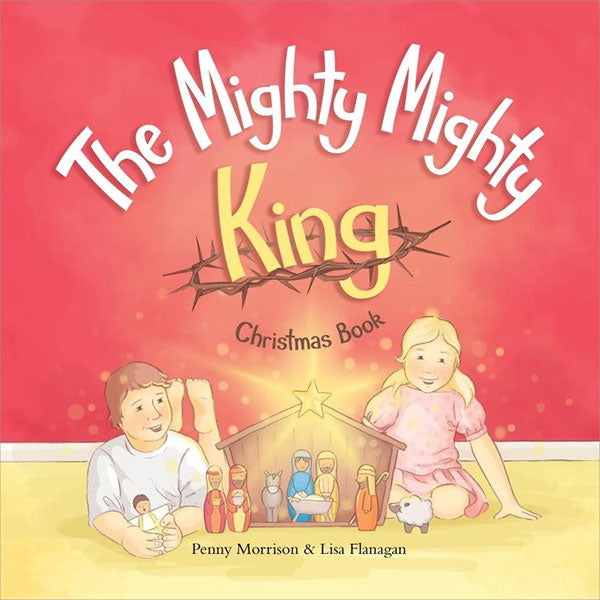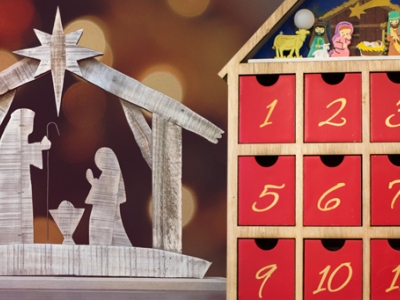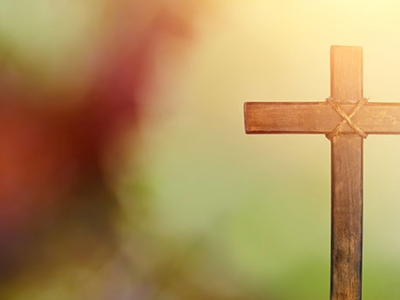
It’s Advent, time to prepare!
An introduction to the first season of the Church calendar.
Time to prepare! This Sunday marks the beginning of the season of Advent. While many of us are wrapping up our work for the year and wrapping up our presents for Christmas, a new season begins. In fact, a new year begins. Not a civil calendar year, but a liturgical year. For Advent is the start of the Christian calendar. So, while we wrap things up this year, we need to prepare for the new year!
Advent comes from the Latin adventus which means ‘coming’ or ‘arrival’. And the Bible speaks about three main comings of our Lord Jesus Christ. Firstly, his coming from heaven to be incarnate of the Virgin Mary (Matthew 1:18–25). Secondly, his coming into our hearts by the Holy Spirit (John 3:5–8). Thirdly, his coming back again in glory to judge the living and the dead; that is the adventus of our Lord Jesus (Acts 17:31; 1 Corinthians 1:8). These three advents shape the Christian life as we prepare to meet Jesus.
Our churches also seek to prepare people to meet Jesus. So understandably Advent has held an important place in the yearly rhythms of church life, the church calendar. In the first few centuries Advent was observed in various ways but became a settled liturgical season by around the 5th or 6th century. At the time of the Reformation, Advent continued as a celebrated liturgical season, with Thomas Cranmer stitching it into the theology and practice of the Book of Common Prayer. The reformers, of course, pruned some of the bits of Roman Catholic devotion off the liturgical calendar, but they continued the celebration of Advent. Why? Because they wanted their churches to encourage people in their preparation to meet Jesus. What an eminently sensible and undoubtedly biblical—even missional!—reason for evangelical and reformed churches today to appreciate Advent.
What does Advent look like? In the Anglican calendar, the first Sunday of Advent always occurs on the Sunday nearest to St Andrew’s Day (November 30). It lasts until Christmas Eve. Each Sunday between that period marks a new week of Advent. So, it encompasses four Sundays and the weekdays leading up to Christmas Eve. Some churches use liturgical colours and drape purple fabric around the church to signal Advent. Some churches use Advent candles and light a new one each Sunday (sometimes a child is invited to do this at the start of the service). There are, of course, plenty of other things which churches physically do to mark out the liturgical seasons. Some practices may be better than others! But the most important things to do in church during Advent involve the Bible and prayer.
The four Sundays of Advent traditionally focus on repentance, the word of God, rightly serving Christ and preparing for the King, with Bible readings from the lectionary that reflect these themes.
Another important feature of Advent is the special prayers (Collects) which Thomas Cranmer included in the Book of Common Prayer. Wonderfully, each of these short prayers is linked to the Advent themes. They were meant to be prayed on Sundays and throughout the week. In our home we have changed them slightly and will use them in our family devotions throughout Advent. You might like to try something like that too!
Advent 1:
Almighty God, give us grace that we may cast away the works of darkness and put on the armour of light, now in the time of this mortal life in which your Son Jesus Christ came among us in great humility; that on the last day, when he comes again in his glorious majesty to judge the living and the dead, we may rise to the life immortal; through him who lives and reigns with you and the Holy Spirit, now and for ever. Amen
Advent 2:
Blessed Lord, you have caused all holy scriptures to be written for our learning: grant us so to hear them, read, mark, learn, and inwardly digest them, that, encouraged and supported by your holy Word, we may embrace and always hold fast the joyful hope of everlasting life, which you have given us in our Saviour Jesus Christ. Amen
Advent 3:
Almighty God, we pray that the course of this world may be so peaceably ordered through your guidance that your church may joyfully serve you in all godly quietness; through Jesus Christ our Lord. Amen.
Advent 4:
We beseech you, Lord, pour your grace into our hearts; that, as we have known the incarnation of your Son Jesus Christ by the message of an angel, so by his cross and passion we may be brought to the glory of his resurrection, who lives and reigns with you and the Holy Spirit, one God, for ever and ever. Amen.
So, we have repentance, the word of God, rightly serving Christ, and preparing for the King. These really are great Advent themes to remember as we prepare for Christmas and the new year. Those responsible for church services may want to include some Advent Bible readings or Collects into their Sunday services. They may want to think about other creative ways of introducing their church to the season of Advent. And there are myriad ways that you could take those glorious Advent themes and try something creative in your home (we have tried several Advent devotionals and Bible reading plans, and I’m even building a small nativity scene for our children this year!).
At the end of the day, these great Advent themes are best put into practice when they help us to prepare for meeting Jesus. That’s what it’s really all about. So, it’s Advent, time to prepare!
A longer version of this article originally appeared at Australian Church Record.
---
Rev Dr Mark Earngey is Head of Church History at Moore Theological College, Sydney and the author of Reformation Worship: Liturgies from the Past for the Present (New Growth Press, 2018). He is married to Tanya and they have four children.

The Mighty Mighty King Christmas Book
The Mighty Mighty King Christmas Book helps children to understand who this special baby was, how he grew up, what he has done for us, and why he is the mighty mighty King we celebrate at Christmas time.
For more articles from Growing Faith, subscribe to our monthly e-newsletter.
To hear about the latest books and resources from Youthworks Media, subscribe here.







